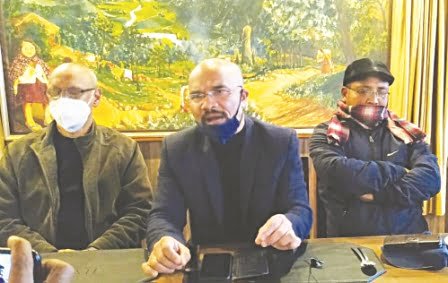Former Nongkrem MLA, Ardent Miller Basaiawmoit on Wednesday said that the Khasis has to accept the fact that there are many issues affecting the community.
“As a community we have to sort out these issues,” Basaiawmoit said in an interaction with reporters.
Basaiawmoit who earlier this year started the “Iada Ia Ka Ri” (Protect The Land) movement said its aim is to bring unity amongst all sections of the community.
He said that the Khasi community should understand the fact that it is a divided society.
The former MLA said that many people who are from outside the state and who are non-indigenous have time and again criticised the Khasi community.
“We should be asking ourselves if such criticisms are true or not,” Basaiawmoit said.
He pointed out that through self-introspection now, the present generation can give a better future for the next generation.
He said that the movement aims to strengthen the social fabric of the Khasis.
“We need to bring in revolution in the business sector of the Khasis, to boost the economic conditions of our people. We also need to bring in good and clean governance which will take care of the future generation,” Basaiawmoit added.
He also urged all the stakeholders in the society to participate in the movement and give their valuable suggestions and not wait for their chance to criticise him.
The former legislator also said that many issues taken up decades ago are still pending since, till date because the Khasis as a community avoid discussing the crux of the problem.
“We need to debate on the real issues afflicting our society. But on most occasions we skirt such issues. We don’t dare to discuss the issues that need to be ironed out,” Basaiawmoit added.
He said that the movement will go ahead and call a spade a spade.
He said that the divide among the Khasi community has been there even after the country got independence and also in 1960 when the movement for statehood was on.
Basaiawmoit also informed that the movement started by him would restart in 2021 which had to be abruptly halted in 2020 due to the COVID-19 pandemic.
























